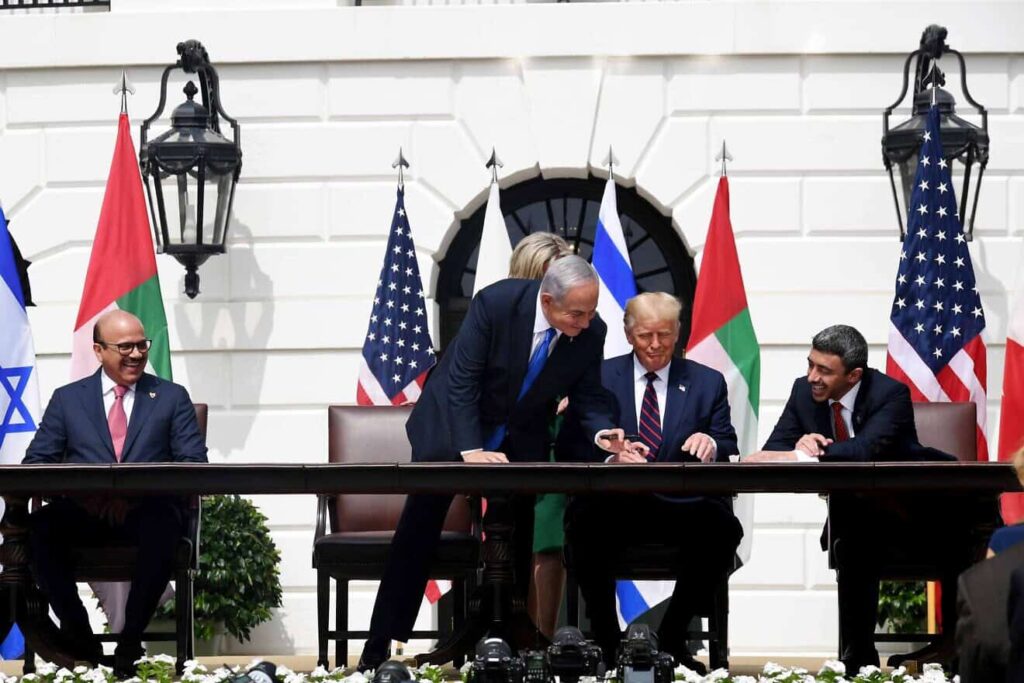As Donald Trump prepares to reclaim the White House in seven days, an extensive portfolio of international and domestic challenges awaits—with Israel’s security concerns commanding significant attention. Unlike his first term, Trump enters office on Jan. 20 following methodical preparation and with a clear grasp of both priorities and implementation strategies.
The Iranian nuclear threat stands as the foremost security concern. Having withdrawn from the nuclear agreement in 2018 during his previous term, Trump demonstrates acute awareness of the immediate danger Tehran represents. Two assassination attempts by the ayatollahs’ regime have only reinforced his determination for swift resolution. The incoming administration’s approach encompasses multiple strategies: stringent American sanctions, enhanced Israeli-American military collaboration and the potential formation of a broader international coalition.
Operational and military support
The ammunition shortage crisis, stemming from the Biden administration’s restrictions on certain munitions, heads Israel’s immediate requirements. Trump’s transition team has indicated plans for comprehensive removal of these restrictions and expedited military shipments to the Israel Defense Forces within the first 48 hours after his inauguration.
The Gaza war presents another urgent priority. The incoming president has articulated a more definitive stance on concluding the war—following an Israeli victory—than has the current Israeli leadership. While an immediate cessation is not expected, Trump’s team anticipates resolution within months. The administration plans to request that Israeli Prime Minister Benjamin Netanyahu provide a detailed strategic roadmap for bringing the campaign to its conclusion.
Diplomatic and legal initiatives
In what would be a significant move against international legal pressure targeting Israel, Trump plans immediate action regarding the International Criminal Court in The Hague (ICC). As reported by Israel Hayom, comprehensive sanctions will target the institution and its personnel, including economic restrictions and U.S. entry bans. This executive action parallels congressional initiatives for stringent legislation against the court and its collaborators.
The administration also plans to swiftly address the Biden-era sanctions affecting Israeli citizens, particularly those targeting Jewish residents of Judea and Samaria and Tzav 9 movement leaders who opposed Hamas supply transfers. Trump’s team has committed to removing these restrictions during their initial days in office.
Regional dynamics and strategic relationships
The completion of the Abraham Accords through Israeli-Saudi normalization remains a shared objective, though significant challenges persist. Saudi Arabia’s nuclear development aspirations conflict with Israeli security principles, while their expectation of Israeli acknowledgment regarding a future Palestinian state faces increased resistance following the Oct. 7 massacre.

Israel’s strategic concerns extend to the growing influence of Muslim Brotherhood-aligned states. This includes Turkey’s expanding regional role, its Syrian protectorate and Qatar’s mounting influence in the West through sophisticated diplomacy and economic leverage. While unaddressed in initial discussions between the incoming administration and Netanyahu, these developments demand increasing attention.
The Palestinian question, central to Trump’s first-term “Deal of the Century,” now occupies a markedly lower priority. While his national security appointees largely align with Israeli right-wing positions, the president’s current stance remains undefined.
Looking forward
Additional bilateral matters await discussion, including Israel’s potential support for various American global initiatives. The United States also maintains its reservations about Chinese involvement in Israeli strategic investments.
These issues are considerably interconnected: Addressing Iran’s nuclear program could influence Saudi nuclear ambitions, while expedited military support could accelerate conflict resolution in Gaza.
Two fundamental principles warrant consideration. First, contemporary leadership typically dedicates 80% of its attention to emerging challenges rather than planned initiatives. Second, Trump—historically considered Israel’s strongest presidential ally—employs unconventional approaches and strategic surprises to achieve breakthrough results. While such behavior may emerge, it is unlikely to disadvantage Israeli interests.
Originally published by Israel Hayom.


























